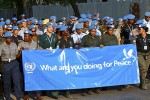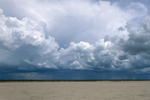Cholera in Haiti and Africa: The Peacekeepers’ Footprint
By Dady Chery Haiti Chery Like the plantain weed, Plantago major, which so reliably matched the movements of European settlers through North America that it became known as “the white man’s footprint,” the cholera epidemics of the last 15 years … Continue reading →



